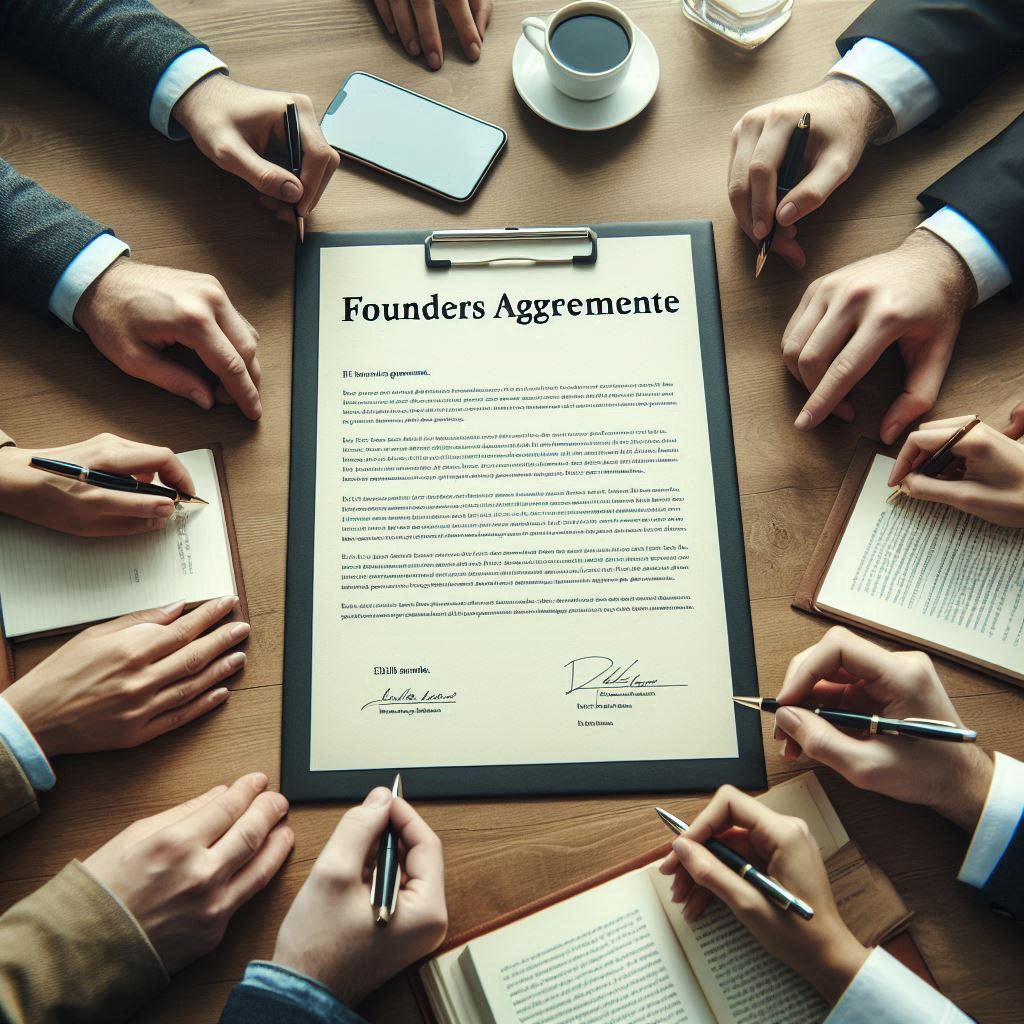Founders’ Agreement
What is a Founders’ Agreement?

Definition:
A Founders’ Agreement is a legally binding contract established between the cofounders of a startup or business. It outlines the roles, responsibilities, ownership stakes, and operational framework for the founding team. This agreement is designed to prevent conflicts, ensure smooth operation, and provide a clear roadmap for the startup’s growth and management.
Analogy:
Imagine a Founders’ Agreement as the playbook for a sports team. Just as a playbook defines the roles, strategies, and rules to ensure that every team member is aligned and knows their responsibilities, a Founders’ Agreement delineates the structure and guidelines for the startup’s cofounders to follow.
Further Description:
Founders’ Agreements can cover a wide range of topics, ensuring that every aspect of the founders’ relationship and business expectations is addressed:
Equity Ownership: Specifies the percentage of ownership each founder has in the company. This division reflects the contributions and agreed value each founder brings to the table.
Roles and Responsibilities: Clearly defines the specific roles and duties of each founder, preventing overlap and confusion regarding operational responsibilities.
DecisionMaking Process: Outlines the decisionmaking protocol, including how votes are cast and conflicts are resolved, ensuring a democratic and efficient approach to governance.
Vesting Schedule: Establishes a timeline for founders to earn their equity, encouraging longterm commitment and protecting the company if a founder decides to leave early.
Intellectual Property (IP) Rights: Ensures that any IP developed by the founders is owned by the company, safeguarding the startup’s innovations and assets.
Exit Strategy: Provides guidelines for how a founder can exit the company, including the terms for selling their shares and the process for transferring responsibilities.
Dispute Resolution: Details the procedures for resolving disagreements among founders, which may include mediation or arbitration.
Key Components of a Founders’ Agreement:
Equity Ownership: Specifies each founder’s share in the company, based on contributions.
Roles and Responsibilities: Defines what each founder will do within the startup.
Vesting Schedule: Sets a timeline for when founders earn their equity.
IP Rights: Ensures all intellectual property created is owned by the company.
DecisionMaking Process: Details how decisions are made and conflicts are resolved.
Exit Strategy: Outlines how a founder can leave the company and what happens to their shares.
Dispute Resolution: Establishes a process for resolving conflicts among founders.
Why are Founders’ Agreements Important?
Clarity and Structure: Provides a clear structure for the startup, ensuring all founders understand their roles and responsibilities.
Prevents Conflicts: By outlining roles, ownership, and decisionmaking processes, it helps prevent disputes among founders.
Investor Confidence: Demonstrates to investors that the startup has a solid foundation and that the founders are committed and organized.
Legal Protection: Offers legal protection by clearly stating the terms of engagement, reducing the risk of future legal issues.
Commitment: The vesting schedule and other terms ensure that founders are committed to the startup’s longterm success.
Examples and Usage:
Tech Startups: Founders of a tech startup use an agreement to define their respective contributions in developing a new software product.
Retail Business: Cofounders of an online retail business outline their roles in marketing, product sourcing, and operations.
Biotech Firm: Founders of a biotech company agree on the division of equity based on each person’s input and expertise in different scientific areas.
Key Takeaways:
- A Founders’ Agreement is a critical document for any startup, outlining the roles, responsibilities, and ownership of each founder.
- Key components include equity ownership, roles and responsibilities, vesting schedule, IP rights, decisionmaking process, exit strategy, and dispute resolution.
- Founders’ Agreements provide clarity, prevent conflicts, enhance investor confidence, offer legal protection, and ensure founder commitment.
- They are used across various industries, from tech startups to retail and biotech firms.
Table of Contents




